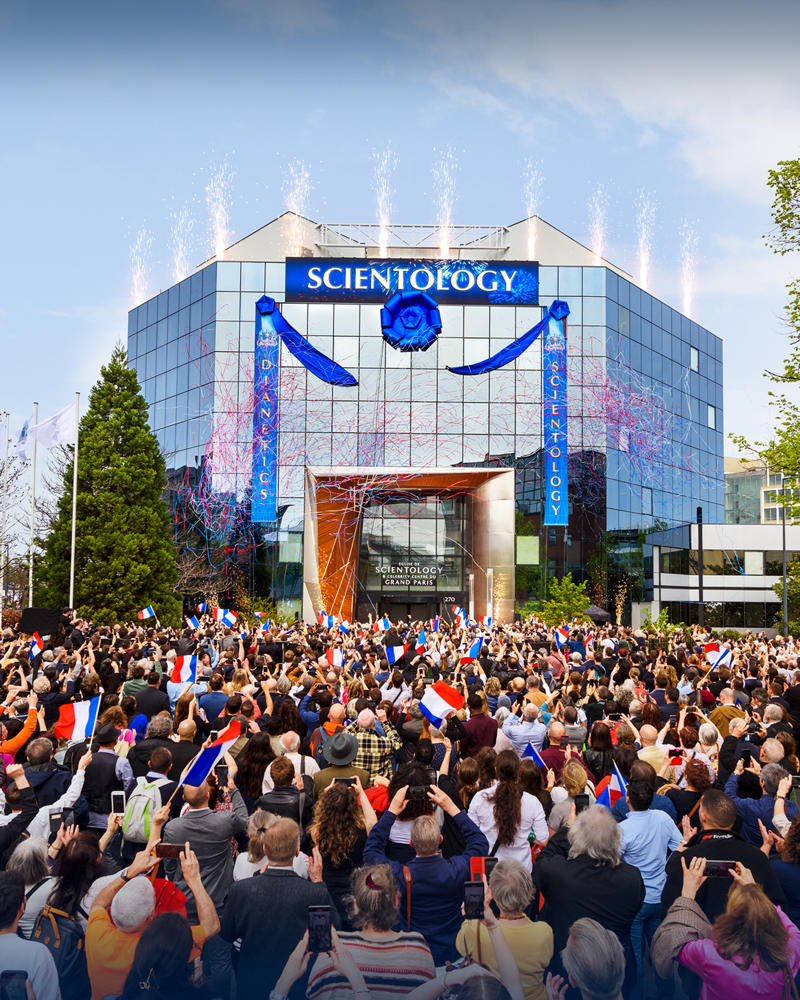The Global Influence of Scientology: Development and Impact Worldwide
The Global Influence of Scientology: Development and Impact Worldwide
Blog Article
Disproving Misconceptions: Separating Truth From Fiction About Scientology

Beginnings of Scientology
The origins of Scientology trace back to the mid-20th century when L. Ron Hubbard, a scientific research fiction writer, established the idea system in the 1950s. Hubbard's growth of Scientology came from his earlier self-help system called Dianetics, which he presented in the 1940s - Scientology. The transition from Dianetics to Scientology marked a shift in the direction of an extra extensive spiritual ideology that incorporated elements of psychology, Eastern spiritual practices, and Hubbard's very own theories on human existence
Hubbard's exploration right into the human mind and spirit brought about the creation of Scientology as a religious beliefs focused around the principle of spiritual knowledge and self-improvement through a process called auditing. Bookkeeping, a kind of spiritual therapy, intends to help individuals get rid of psychological and psychological barriers, known as engrams, that impede individual growth and understanding.
As Hubbard's teachings acquired popularity, Scientology progressed right into a worldwide motion with a significant following. Despite objections and conflicts bordering its techniques and ideas, Scientology proceeds to bring in fans seeking spiritual satisfaction and personal development.
Core Beliefs and Practices

One more basic facet of Scientology is the principle of the Thetan, the spiritual significance of a person that goes beyond the physique. Fans intend to understand and reinforce their connection to the Thetan with different methods such as research study training courses and filtration routines.
The Church of Scientology additionally positions a solid focus on the significance of individual duty and the idea that individuals have the power to shape their own destinies. Through adherence to ethical guidelines and the search of self-improvement, practitioners of Scientology strive to achieve better degrees of joy, success, and spiritual satisfaction.
Criticisms and debates
In the middle of Scientology's core ideas and methods lies a landscape noted by controversies and objections that have stimulated extreme dispute and scrutiny. Furthermore, Scientology's standing as a tax-exempt religious company in some countries has actually been a factor of contention, with doubters arguing that its techniques are more similar to a company than a religious beliefs.
Another area of debate borders the Church's treatment of dissenters and doubters. Records have emerged of harassment, scare tactics, and legal risks routed at those who speak up versus Scientology. This has increased worries about freedom of expression and the company's dedication to transparency and responsibility.
While Scientology has actually emphatically denied a lot of these claims, the criticisms and disputes bordering the Church remain to sustain public apprehension and scrutiny.
Scientology's Influence in Society
With its visibility in different markets of society, Scientology's impact can be observed in both refined and obvious ways, shaping interactions and understandings. In the realm of education, the Church of Scientology has actually faced scrutiny for its initiatives to present its trainings right into colleges about his via programs like "Applied Scholastics." Doubters say that such campaigns obscure the lines in between church and state, possibly impacting the academic experiences of trainees. Moreover, Scientology's impact prolongs to the realm of mental health and wellness, where its views on psychiatry and psychology have sparked debates within the medical community. The church's anti-psychiatry position has caused suspicion and issues concerning the effectiveness of mental health therapies. In the world try here of amusement, Scientology's organization with prominent stars has brought interest to the religion, both positively and adversely. The involvement of famous numbers in Scientology has, sometimes, served to popularize the faith, while in others, it has drawn objection and increased questions about the church's ideas and methods.
Debunking Common Misconceptions
The Church of Scientology is legally acknowledged as a religion in numerous nations, consisting of the United States, where it has tax-exempt condition. Like various other faiths, Scientology offers spiritual support and methods for its participants.
Another mistaken belief is that Scientology forces its members to cut ties with their households. Actually, the church emphasizes the significance of household connections and urges participants to keep healthy connections with their liked ones.

Conclusion
Finally, it is essential to separate truth from fiction when reviewing Scientology. By analyzing its beginnings, core ideas, conflicts, and impact in culture, we can debunk common misconceptions surrounding this religion. It is important to come close to the topic with a crucial and objective state of mind in order to comprehend Scientology precisely and without predisposition.
Rooted in a foundation of spiritual enlightenment and personal growth, Scientology's core beliefs and practices encompass a varied array of concepts and rituals. Central to Scientology is the belief that humans are never-ceasing spiritual beings that have forgotten their real nature. The participation of popular figures in Scientology has, in some cases, served to promote the Recommended Reading faith, while in others, it has drawn objection and increased questions about the church's practices and ideas.
The Church of Scientology is legally identified as a religious beliefs in numerous countries, consisting of the United States, where it has tax-exempt status. Like various other religious beliefs, Scientology offers spiritual guidance and techniques for its members.
Report this page